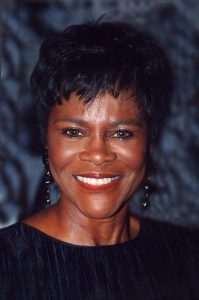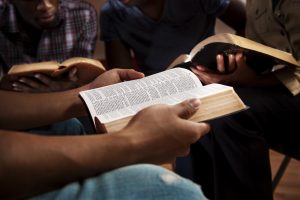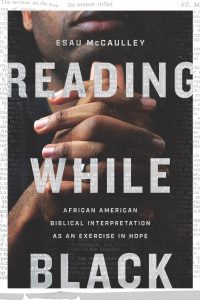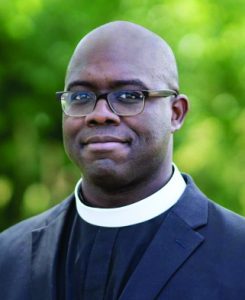
by Steve | May 26, 2021 | Magazine, Magazine Articles, May/June MJ 2021

B.J. Funk
By B.J. Funk –
Joseph was around seventeen when his cruel brothers sold him to a caravan of Ishmaelites on their way to Egypt. These folks were all kin, descending from half brothers Isaac and Ishmael. So much for loving your relatives.
It took 30 days for Joseph and the caravan to arrive in Egypt, and most of that time, Joseph was on foot and likely chained.
Egypt at that time was a land of extremes. There were the very rich and the very poor. The captain of Pharaoh’s guard, Potiphar, bought Joseph.
Potiphar was very rich. He had a huge home, several stories tall, with beautiful balconies and gardens. The rich knew how to spend some money, and they shopped for lavish decorations and furniture! They would never be seen at my yard sale. Or yours.
Joseph joined the other servants, working on the first floor while the family enjoyed the upper floors. Joseph found favor in Potiphar’s eyes because everything he did was successful. So, Potiphar put Joseph in charge of his household and of everything he owned. Because of Joseph, the blessing of the Lord was on Potiphar’s house and on his fields. Potiphar trusted Joseph, which is a miracle in itself because Egyptians despised shepherds. It was an intriguing and amazing occurrence, and God’s hand was all over it. “The Lord was with Joseph, and he prospered.” (Genesis 39: 2)
Potiphar’s wife noticed the dark skin, curly haired, muscular Joseph, and she decided she wanted to be with him. What could it hurt? She was not subtle. “Lie with me,” she said.
Joseph refused. “How could I do such a wicked thing and sin against God?” (Genesis 39:9). Potiphar’s wife looked puzzled. Wicked? He calls sex outside of marriage wicked? Wherever would he get an idea like that? And what’s this about sinning against God? Where did that come from? Who is this God anyway? She turned the whole scene around, blaming Joseph and bringing Potiphar’s fury. He put Joseph in the dungeon – and that’s where he met grace.
The story of Joseph is so covered with God that I can see him in every line, comma, and period! This is how God works when he is making a leader. He has to put him in the dungeon of life first. Keep him there. Teach him there. Break his pride. Stomp on his rebellious heart. Tear out jealousy, anger, resentment. Teach him to forgive, and wrap it all up with heavy doses of grace. Dungeon grace.
Joseph learned all of these lessons in his dungeon. Though painful and lonely, frightening and scary, Joseph came out of his dungeon a strong man, ready to be used of God. You cannot find any Lifetime, Netflix, or Hollywood movie better than the storyline of how God used a dungeon to make a man. It has drama, loneliness, fear, and survival woven into the storyline.
Growth and leadership happen to a person when God allows the dungeon to shape his heart. Make no mistake. If you want to move forward with God, a dungeon of some sort has to happen. You and I have to be willing to allow him to place us in as many dungeons as necessary until we come out refined, refreshed, redeemed, and ready to do His work. Fast forward to Romans and read what Paul said about troubles. He said suffering was the road to perseverance. “Not only so, but we also glory in our sufferings, because we know that suffering produces perseverance” (Romans 5:3).
The dungeon was Joseph’s school and in daily classes of prison life, he learned a lot about himself, a lot about others, and a whole lot about forgiveness. He learned what was important in life and what was not. When Joseph was finally released from the dungeon, he was a different person. The spoiled teenager was replaced by a repentant man. The youth who saw only things that benefited him was now a leader who recognized how he could benefit others. When his brothers came to Egypt for grain because of a famine, he eventually said to them words of forgiveness and life. “You intended to harm me, but God intended it for good to accomplish what is now being done, the saving of many lives” (Genesis 50:20).
Your dungeon might be a difficult relationship, a financial strain, a rebellious child, or a nagging low self-image. Whatever, ask God to meet you there and to help you make it through. You will find that your dungeon will be the place of your deliverance. Embrace God’s gift – his gift of Dungeon Grace.

by Steve | Apr 30, 2021 | Magazine Articles, Uncategorized

Mt. Bethel
By Rob Renfroe —
A number of our larger, most healthy churches have recently been told that their senior pastor is being moved to another appointment, without consultation with the pastor or the congregation. One is Mt. Bethel in the North Georgia Annual Conference. It’s one of the ten largest churches in the denomination. The others are in the Greater New Jersey and the California-Pacific Annual Conferences.
Thus, they are in different regions of the country. One, Mt. Bethel, is predominantly white. The other four, one in New Jersey and three in California, are Korean. What do they have in common? They are all strongly traditional in their beliefs. They are all under the authority of a centrist to progressive bishop.
Something else they have in common is that none of these churches appreciate how they have been treated in the removal of their senior pastor. All United Methodist pastors serve at the pleasure of their bishop. All United Methodists churches know their bishop has the right to appoint whoever he or she believes is best for their church. But every church and every pastor, unless there is some moral failure, expects to be treated with common courtesy and respect in the process.
Some have condemned Mt. Bethel’s unwillingness to receive a new pastor. The expected liberal critics have blasted the church for wanting to be treated differently than other churches because of its size. But these critics are missing the point. Neither the pastor nor the church’s SPRC were consulted before the appointment was announced as required in The Book of Discipline. And though larger churches are not special or above the rules because of their size, replacing their senior pastor in a way that screams, “I am the bishop and I know what’s best for you,” is not smart, respectful, or helpful to the person who is taking over the removed pastor’s position.
The senior pastor at the church I serve announced his retirement this January. The Woodlands United Methodist Church, just north of Houston, is also one of the denomination’s largest. The process of appointing his successor began three years ago. The bishop and our SPRC worked closely and amicably together with the same goals – finding the right person for the position and conducting the process in a way that guaranteed the new pastor would be well-received by the congregation and begin his or her ministry with the greatest chance of success. Replacing the pastor of a large church does not require three years. But to be effective and healthy for the church, the process – well, first it must be a process, not a pronouncement from on high – needs to be open and collaborative.
A church does not need to be the size of The Woodlands or Mt. Bethel to know when its lay leadership and its congregation are being disrespected. And it is wise to be aware that if you appoint someone to be the senior pastor of a church without proper consultation, you are likely doing harm to that congregation.
Why three different bishops would show such little regard for thriving churches and their ministries is indeed puzzling. The five churches involved have either stated or have given reason to believe they will leave the Post-Separation United Methodist Church when the Protocol for Reconciliation and Grace through Separation is passed. It is easy to believe, possibly wrongly, that these disruptive appointments are punitive in nature – a way of insuring that these churches will not leave as whole and as healthy as they might have.
It’s also natural to wonder if removing beloved senior pastors is a strategic play for financial gain. If a bishop can make things so difficult for a traditional church that it decides to leave before the Protocol is passed, it will need to pay a high financial price for disaffiliation. In the case of Mt. Bethel it could be several millions of dollars. It makes sense. If a church leaves after the Protocol, it takes its property and its assets without any payment to the Post-Separation UM Church.
So, what does a bishop have to lose if she or he so offends a traditional congregation that it decides to leave early? It was departing anyway. Why not fill dwindling annual conference coffers with a costly disaffiliation exit fee? In fact, it might be considered a shrewd play. Turn up the heat until the church feels it must depart – either leaving its buildings and property behind or paying dearly for the privilege of taking what it has sacrificed to build over the decades.
Another possibility is that a bishop, by disrespecting a congregation, could hope to run off all of its strongly traditional members. Make them so upset that they decide to leave and form a new church. Those remaining would have decided they could live with such a bishop and the UM denomination he or she represents. They would also retain the rights to the property. Perhaps those who stay would vote to remain in the post-separation UM Church, the denomination that bishop represents, and bring their buildings and their assets with them.
It’s hard to believe that any representative of Christ, particularly bishops of The United Methodist Church, would be cynical and Machiavellian enough to play these games. Especially one who told the Washington Post after the 2019 General Conference, “If the Methodist church has to get leaner and nicer, I’m all for it. I’m tired of the meanness. I’m tired of the pettiness. I’m tired of the fighting to win at all costs.”
And one would think that, in this time when we have all become aware of how Asian Americans are often the victims of prejudice and mistreatment, bishops would be sensitive to the optics of how they treat predominantly Asian congregations and clergy.
But three different Annual Conferences. Three different centrist to progressive bishops. Five different traditional churches. One has to wonder what’s behind it. And where it will go next.
Rob Renfroe is a United Methodist clergyperson and the president and publisher of Good News.

by Steve | Mar 18, 2021 | Magazine, Magazine Articles, March/April 2021

Cicely Tyson, 1997. Photo: © John Mathew Smith.
By Steve Beard —
“We don’t have long here, children. Our hopes and aspirations may feel limitless, but our days are finite, our experiences fading in the twinkling of an eye,” observed actress Cicely Tyson in her recent memoir, Just As I Am.
“Death is a love note to the living, to regard every day, every breath, as sacred. ‘What is your life?’ the scriptures ask us. ‘You are a mist that appears for a little while and then vanishes’ (James 4:14). The Spirit is ever beckoning us to heed that wisdom,” Tyson continued, “to get on with what we’ve been put here to do.”
Her autobiography was published one week before she died on January 28. She was 96.
Having stepped into more than 100 different acting roles over her illustrious career, Tyson was as mystically discerning about the characters she would portray as she was confident that God was authoring her “Grand Story Line,” as she called it. “I am a firm believer in divine guidance. Above all, I am God’s child, cradled in his unfailing arms, guided by his infinite wisdom,” she wrote. “Everything that is happening in my life is unfolding exactly as God has intended. There are no coincidences. Rather, there is a loving Savior who holds my future as securely as he does my life, and at every juncture, he is whispering his will, showing me the way.”
Don’t be mistaken into believing that a life with navigation from above is necessarily an easy one. Her story testifies to that. Although she was a celebrated model, actress, and activist, she suffered crass indignities and discrimination as a Black woman. Although her pioneering roles presented her with a public platform, she was simultaneously on the receiving end of the brutality of bigotry.
“To ever heal these deep racial traumas – and seldom has it felt more urgent that we do – we must acknowledge that they indeed still exist, throbbing and tender beneath the surface, spilling over, like molten rage, into the streets,” she wrote. “Turning a blind eye to our history has not saved us from its consequences.”
Through it all, Tyson’s persistent excellence at her craft helped her capture three Emmy Awards, a Tony, and an honorary Oscar. She appeared in more than 25 films, 60 television shows, and 15 Broadway productions. She was honored by the Kennedy Center and awarded the Presidential Medal of Freedom.
Tyson believed that the arts could truly be a force for good and expand the civil rights vision. “My art had to both mirror the times and propel them forward,” she wrote. After the assassination of Dr. Martin Luther King Jr., Tyson was the co-founder of the Dance Theater of Harlem. In 1995, a magnet school in East Orange, New Jersey, was renamed the Cicely Tyson School of Performing and Fine Arts.
“I couldn’t have dreamed up a script more compelling than the one that played out for me,” Tyson wrote. “Who just happens to be approached on the street by a total stranger, only to have that man propose modeling, only to have that modeling work become a footbridge to the stage? To some, this might look like happenstance, a sequence of coincidences, a string of disconnected flukes. As I see it, my tide shift, my sharp turnaround, had the Savior’s handprints all over it. His sovereignty was apparent to me. It still is. The same Master who holds the firmaments in the crease of his palms, who commands oceans to recede, who maintains humanity’s entire existence with the mist of his breath – that God, the Source of time itself, the Creator of all life, has forever been directing mine.”
Just As I Am is not a conventional Christian bookstore devotional. That is not its intent. The confident testimony that appears is from one who grimaced through the broken marriage of her parents, her own unwed pregnancy, and her tumultuous romantic relationship with jazz legend Miles Davis. Through shipwrecks and sunrises, she consistently testified to the faithfulness of God.
At twelve, she began playing songs from the church hymnal on the piano. “During long afternoons as the sun’s mango rays painted shadows on our walls, I’d sit hunched over those chipped keys, soothing myself with the message of the hymn that has become my daily meditation: ‘Just as I am, without one plea/ But that Thy blood was shed for me/ And that Thou bid’st me come to Thee/ O Lamb of God, I come! I come.’”
Strong roles. As an actress, Tyson was outspoken about refusing to take parts that demeaned Black people – even if it meant going without work. The roles she did chose, however, accentuated her brilliance. In 1972, she portrayed Rebecca, the wife of a Louisiana sharecropper in Sounder. Tyson won an Emmy for her portrayal in “The Autobiography of Miss Jane Pittman,” culminating in an unforgettable scene when she sips from a whites-only drinking fountain. Over the years, she played Harriet Tubman, Coretta Scott King, and Castalia in the mini-series “Oldest Living Confederate Widow Tells All.”
In 1977, she became part of television history by playing Kunta Kinte’s mother in the TV series based on Alex Haley’s “Roots.” Airing over eight consecutive nights at the end of January 1977, the series blew apart the Nielsen ratings. At that time, the final episode became the most-watched TV production with 51.1 percent of all American homes tuning in for the epic story.
Fast forward through her seven-decade career and, at the age of 88, Tyson became the oldest person to win a Tony award in 2013 for her role as Mrs. Carrie Watts in the Broadway revival of Horton Foote’s “The Trip to Bountiful.” One notable part of Tyson’s performance triggered a newsworthy Broadway reaction when the audience joined Tyson in singing the classic hymn “Blessed Assurance” during the second act.
“From the first note, there’s a palpable stirring among many of the black patrons in the audience, which the play, with its mostly black cast, draws in large numbers,” reported The New York Times. “When Ms. Tyson jumps to her feet, spreads her arms and picks up the volume, they start singing along. On some nights it’s a muted accompaniment. On other nights, and especially at Sunday matinees, it’s a full-throated chorus that rocks the theater.”
The gospel song was a special touchpoint for Tyson. She dedicated a third-row pew at Abyssinian Baptist Church in Harlem, her home congregation, to her mother’s memory. The plaque reads, “To mother – Blessed Assurance,” a reference to the beloved hymn.
“On Sundays when I take my seat near her name, I think of all she endured, the many times she surely wanted to give up but pressed onward,” Tyson writes in her book. “I recall her swaying, eyes tightly shut, as the words of that hymn washed through her. ‘This is my story, this is my song,’ she’d belt out during the refrain. ‘Praising my Savior, all the day long.’ Her powerful testimony, grounded in grace and nourished in glory, has since become my own.”
At the age of 93, she gave a message to her home congregation about her religious upbringing. “We were in church from Sunday morning to Saturday night,” she said to laughter in the sanctuary. She played the organ, taught Sunday school, led the choir, and cleaned the church. “I decided at one point that if I ever lived to become a woman, I would never enter the portals of a church again,” she said jokingly – once again, to sustained laughter.
However, the magnetism and solace of faith proved to be almost irresistible. “I look daily toward heaven for restoration, for spiritual healing,” she wrote in her book. “My true identity isn’t rooted in our history, grievous and glorious as it is. It is grounded in my designation as a child of God, the daughter of the Great Physician. In his care, I find my cure.”
Rest in peace, Sister Cicely. Rest in peace.
Steve Beard is the editor of Good News.

by Steve | Mar 18, 2021 | Magazine, Magazine Articles, March/April 2021

Photo from iStock.
By Carolyn Moore-
Thinking back only two years ago, it is hard to imagine that wearing a medical mask could have become a national political conflict. And if someone had told me only a year ago that my faith would be called into question because I suspended in-person worship for three months during a worldwide pandemic, I would have smirked at such Orwellian nonsense and suggested a twelve-step group.
And yet, here we are. These are strange days indeed, as this crisis has frayed the national fabric and exposed the depth of our political and spiritual divide. But as with most things, there is an opportunity here to bring beauty from ashes. In a country fighting – literally fighting – for its life, Christians have a choice to make about our allegiance. Who is our King? Where is our country? What defines our worldview?
We are not the first to need such redefinition. In the New Testament, Peter’s letter to the Christian communities scattered across Asia Minor (a region that would fall inside Turkey’s boundaries today), was written to folks enduring deep and worsening tribulation. Peter’s letters were meant to encourage and inspire them to see themselves not as pawns of the state but as citizens of an alternate Kingdom. Although the world – and in particular the Roman Empire, the dominant earthly power in their world – did not value or want them, God did. And not only that, but God could offer them a country of their own, a worldview that would endure beyond an empire, and a King who loved them, chose them, and had plans for them.
In an age when the emperor was often considered to be a kind of god and a force to be feared, and allegiance was expected without question, Peter’s message was radical. Yet, into that very culture Peter would boldly speak the language of choice and rejection, priming his audience to hear that a choice to follow one empire was a choice to reject another, and that in fact they had already been chosen by one who had already been rejected by the very world that was now rejecting them.
In his letter, Peter would quote Psalm 118:22: “The stone the builders rejected has become the cornerstone” (1 Peter 2:7). Jesus would wield the same verse as a warning to the Pharisees: by rejecting Jesus, they were rejecting the Kingdom of God (Matthew 21:42). Peter would proclaim that this One, though rejected, has become the reigning King. Those who follow him would become citizens of his Kingdom and his gospel would become their worldview.
A citizen of this Kingdom would be known not by party affiliation but by supernatural transformation: “You are a chosen people, a royal priesthood, a holy nation, God’s special possession, that you may declare the praises of him who called you out of darkness into his wonderful light. Once you were not a people, but now you are the people of God; once you had not received mercy, but now you have received mercy” (1 Peter 2:9-10).
Every word in this passage deserves its own exegesis, but for our purposes we will focus on what it means to be chosen as a special possession. Our Wesleyan ears should hear again that chosenness is our theological inheritance, too. It is the gift of a life that has been fundamentally altered to reflect an other-worldly character, resulting in an other-worldly allegiance – in the world but not of it. And it is the leaven that works its way through a culture to fundamentally transform it into God’s special possession as well.
Chosen. A naturally competitive world teaches us to eye each other with suspicion and vie for our place. That spirit creates panic-runs on the grocery store and causes us to pull in and care only for “us and ours.” Chosenness is a critical quality of a Kingdom citizen. It was the missing piece in John Wesley’s spiritual life that – once discovered – changed the trajectory of his ministry and sparked a global revival.
Augustus Spangenberg once asked John Wesley if he knew Christ, only to have Wesley respond academically, “I know He is the Savior of the world.” Spangenberg pressed him on that point. “But do you know yourself?” That question exposed an interior world of self-doubt that plagued Wesley’s spiritual life and ministry effectiveness. 
The conversation with Spangenberg laid the groundwork for a later encounter with the Holy Spirit, after which Wesley could finally embrace the truth of his own personal chosenness. “I felt that I did trust in Christ and Christ alone, and an assurance was given me that He had taken away my sins, even mine …” (emphasis added).
Knowing ourselves as chosen not only allows us to conquer feelings of fear and spiritual inadequacy, but fundamentally shifts how we engage the world around us. We can operate from a secure place, our identity rooted in a firmer foundation than the shifting sands of partisan politics. When we know ourselves as chosen, we can empathize with the pain of others without feeling ourselves diminished in the process.
Jesus’s word to his followers that they were like a city on a hill or a lamp on a stand is a good word for us who worry that we are not enough. When a lamp gives off light, it isn’t diminished by that. Unless it burns out, it keeps giving light at the speed of light, even if everything around it is darkness. When we know ourselves as chosen and not in some way depleted, we can love, share, serve, and listen to understand, and yet be undiminished by all we give. We only increase the circle of illumination around us.
Royal. Peter goes so far as to qualify our chosenness as royal. We are children of the King. In a brutal, competitive, me-first world, Kingship is often acquired or defended by taking the lives – shedding the blood – of challengers. Meanwhile, Jesus is the anti-king-of-the-hill king. Rather than a tyrannical monarch who kills to gain power, King Jesus gave his blood away. When we allow his royal blood to course through our veins, we become members of his household with all the rights and privileges afforded to royalty. When we know ourselves as royal, we begin to see our needs as covered by virtue of our place in the royal family.
By calling Jesus’ followers “royal,” Peter shapes a new definition for citizenship. “Once you had no identity as a people; now you are the people of God. Once you had not received mercy but now you have received God’s mercy” (1 Peter 2:10). As children of the King, we have inherited all the rights and privileges of a royal family. In biblical terms, we are holy; and yet, we are not called to hold ourselves out from the world but to invite others into the Kingdom of God.
“Your task is to find the symbolic ways of doing things differently, planting flags in a hostile soil, setting up signposts that say there is a different way to be human,” writes British biblical scholar N.T. Wright. “And when people are puzzled at what you’re doing, find ways – fresh ways – of telling the story of the return of the human race from its exile, and use stories as your explanation.”
As royalty, we have the right, responsibility, and pleasure of inviting the world out of exile, introducing it to its alternate story of an in-breaking Kingdom that will never end.
God’s own possession. The Greek word Peter uses for “special possession” – peripoiesis – is fire-breathing. We find this word used five times in the New Testament and with various nuances of meaning. It can mean “a purchased possession,” but it is also used to talk about obtaining salvation. Where we see it used in that way, it is as if God is obtaining salvation for us, rather than us obtaining it for ourselves.
This word teaches us something about how God comes for us. He comes to buy us back, to provide a kind of protection, to get us out of bondage. And yet, peripoiesis is even more than that. Peri means “around.” Possession in this sense is literally God drawing a circle around us, as if to say, “This one is mine.” The word radiates the truth of our chosenness, of our regal status.
God has come for us, has drawn a circle around us, has claimed the ground around us as Kingdom soil and us as Kingdom citizens. There seems to be muscle behind this word, a sense not only of coming after us but of snatching us out of the hands of our enemies. Peripoiesis is the Great Lion of Judah hearing our cries and knowing our trouble and coming to stand guard over us until the enemy has passed by. Surely this is the spirit of Paul’s words to the Corinthians. “You are not your own, for you were bought with a price” (1 Corinthians 6:19-20).
Inside that word – peripoiesis – is the word poiesis. In philosophy, poiesis is “the activity in which a person brings something into being that did not exist before,” observes theologian John Polkinghorne. Or as Peter would say in this same verse, God has called us out of darkness into his marvelous light (1 Peter 2:9). When God, who creates new things out of nothing, possesses us and draws us into Kingdom citizenship, he introduces something new into the world, almost as if uncovering a treasure buried in a field.
“Christians are the insiders who have diverted from their culture by being born again,” writes theologian Miroslav Volf. “They are by definition those who are not what they used to be, those who do not live like they used to live. Christian difference is therefore not an insertion of something new into the old from outside, but a bursting out of the new precisely within the proper space of the old.”
And why does God so transform us in this way? So we can declare his praises. As citizens of the Kingdom of God, our work is to declare the praises of our King and to reject anything other than the Kingdom of God as our highest priority and only allegiance. It is not ours to determine whether one party or another (or even one country or another) is more or less holy. The unshakable Kingdom of God is our country, and we are Kingdom people – royalty with power to inform and transform the community and world in which we live, vote, speak, act, and have our being.
King Jesus is our leader, a just and holy God who demands and deserves our absolute allegiance through faith and works. His gospel is our worldview and platform; it informs our every choice. Let that guide our every public comment and private musing as we navigate a volatile culture in desperate need of transformation.
Carolyn Moore is lead pastor of Mosaic United Methodist Church in Evans, Georgia. In addition to being a sought after speaker, blogger (artofholiness.com), author of several books, including Supernatural: Experiencing the Power of God’s Kingdom (Seedbed), Dr. Moore also serves as the chair of The Wesleyan Covenant Association’s Global Council. This essay first appeared at Firebrand (firebrandmag.com) and is reprinted here by permission.

by Steve | Mar 18, 2021 | Magazine, Magazine Articles, March/April 2021
 By Zim Flores –
By Zim Flores –
The book of Jonah chronicles a man of the same name who rebelled against the instructions of God and fled from Nineveh. He was tossed into a tumultuous sea, only to be swallowed by a giant fish that God had appointed. Inside the fish’s belly, Jonah was faced with a decision: he could either force his way out of the fish – gutting it from the inside out – or he could embrace the stillness.
The situation couldn’t have been comfortable for Jonah. It was probably terrifying. He probably felt stranded, trapped on all sides even. But as he prayed to God, he didn’t pray for deliverance, like many would have.
It was only while being still, inside the fish, that he received revelation. There he was, trapped in the belly of this creature for three days and three nights. Instead of trying to escape, he made a declaration. He acknowledged his own shortcomings and thanked God, offering up a sacrifice of praise and proclaiming that God had the final say.
In times like these, it’s important that we don’t find ourselves desiring deliverance more than revelation. Sometimes, when we don’t understand what’s happening around us, we just want the pain to stop. But wanting out too early simply evades the process that God wants us to go through. It eliminates the growth we’ll experience if we stay the course.
There are countless examples of men and women of God being put to the test. But what is most noble and notable about their stories isn’t of their escape; it’s what happened when they endured.
As much as we desire the rescue, we have to find comfort in the discord. Refusing to gut the fish means that we’re committed to the assignment God has for us.
When Jonah was delivered from the belly of the fish, he wasn’t regurgitated into the ocean to fend for himself. He didn’t have to swim miles back to shore. Even though he was tossed into the ocean in the middle of a storm, Jonah was delivered onto the safety of the shore. Jonah was delivered on firm ground with a fresh revelation of his assignment. “Then the word of the Lord came to Jonah the second time, saying, ‘Arise, go to Nineveh, that great city, and call out against it the message that I tell you’” (Jonah 3:1-2).
The Darkest Hours. Even in our darkest hours, we are still under the protection of the Lord. We will never understand our purpose if we always gut the fish.
Choosing not to gut the fish is perhaps the most grueling part of it all. We know that God sees what’s happening, and sometimes it seems like cruel and unusual punishment. But how else will God grow us?
No matter how painful or how terrified we are of the unknown, we have to remember that our former lives weren’t necessarily better. They were just different. When we find ourselves dwelling on the simpler days, we should remember Isaiah 43:18-19, which says, “Remember not the former things, nor consider the things of old. Behold, I am doing a new thing; now it springs forth, do you not perceive it? I will make a way in the wilderness and rivers in the desert.”
Those who stayed in the midst of their challenges benefitted from a full restoration of God’s promise in their lives.
• Joseph was a dreamer who was sold into slavery, but later became a ruler over Egypt.
• Job had everything taken from him, but never cursed God. In the end, his riches were completely restored – and then some.
• David was a shepherd boy who became the king of lsrael.
• Esther was an orphan who became a queen.
• And Rahab was a prostitute who became an ancestress of Jesus Christ.
God wants to deliver us unto our purpose, but it’s up to us to stay the course.
Within the quiet moments of a tumultuous season, you’ll find the answers you need – as long as you don’t force your way out. Pause and praise. We can’t pray our way out of a silent season. But we can pray for the strength to endure and for an open heart to receive. That’s how we make it out to the glory of God.
God is a character-forming God. He turns our times of transition into testimonies for His glory.
The word selah is mentioned roughly seventy-four times in the Bible. Although its exact meaning is unknown, many scholars agree that its meaning necessitates two things: a pause and a praise. Selah then becomes the conduit by which we learn to appreciate the many transitions of life, whether planned or not. When we think about the goodness of God, we cannot fully do so without pausing to reflect on the many ways that he has shaped our lives and saved us from the devices of the enemy. 
The moment praise dwells on our lips, God is in the midst. The Bible says that God inhabits the praises of his people (Psalm 22:3). Pausing and praising doesn’t just change our hearts, it transforms our minds. When we thank him for the things he’s already done, what he has chosen not to do in our lives begins to fade into the distance.
The reality is that faith in the middle of suffering looks a lot different than faith in the testimony. Faith during our testimony is polished. It speaks of an undeniable, unshakable faith in the goodness of God and his sovereignty. But faith in the middle of our suffering asks questions. It doubts. It can be angry. As we go through new challenges, we realize that faith isn’t pretty. It’s ugly. It’s hard. It can break us. And our lack of it can turn us away from God.
Faith requires a pause. And let’s be honest: no one likes waiting. We wait in long lines. We wait in traffic. We wait for the perfect relationship. We wait months for our babies to arrive. Pausing without praising leaves room for the enemy to introduce tactics of deceit and confusion. An idle mind breeds more contempt.
Think about what we’ll be able to do for God’s Kingdom if we master the art of pausing and praising. Selah means that we are actively positioning ourselves to receive God’s best. It means that we acknowledge God’s direction and timing in our lives. Faith is important. In fact, the Bible says that it is impossible to please God without it (Hebrews 11:6). Imagine your life if during every trial you had absolute confidence that God was with you. Or imagine your response if you knew God was working within the details to leverage everything for your good.
Faith grows from being tested and enduring. We grow from faith to faith; we don’t just magically start with tons of faith in God. According to Romans 12:3, God gives everyone a measure of faith. As Christians, it is then our responsibility to continue to grow in it.

This is not to say that there is always a reward for your pause and your praise. Perhaps it simply means that God will change your heart about that very thing you thought you wanted. When Jesus and the disciples were in a boat that was caught in a big storm, Jesus took a nap while the disciples were beside themselves. They woke him up to ask him to save them. Matthew 8:26 says, “And he said to them, ‘Why are you afraid, O you of little faith?’ Then he rose and rebuked the winds and the sea, and there was a great calm.”
By sleeping through the storm, Jesus was saying that we can trust him even in the middle of it. When we pause without praising, we become hasty. We get impatient. We try to take matters into our own hands to try and help God out. When we choose to stay where God places us, we continue to work as unto the Lord, prioritizing our relationship with him as we serve others.
It may not be our fault that we’re in a given situation. It’s not our responsibility to figure out what got us there. But it is our responsibility to bloom where God plants us if we dare. Everything that we go through is meant for the greater assignment that he has for us: to be more like him. If our life is a staircase and Jesus is on the top step, with every gutted fish, we take a step backward. But God holds us there in his grace. We are already redeemed by his blood. And with every season we stay in the belly of the fish, we take a step toward our purpose.
Zim Flores is the author of Dare to Bloom: Trusting God through Painful Endings and New Beginnings. An entrepreneur, Zim is the founder of Italicist, an online styling service, and is a Forbes “30 Under 30” awardee. (c) Zim Flores. Adapted by permission of Thomas Nelson.

by Steve | Mar 18, 2021 | Magazine, Magazine Articles, March-April 2021
By David Watson –

The Rev. Dr. Esau McCaulley is an Anglican priest and Assistant Professor of New Testament at Wheaton College. While studying at the University of St Andrews in Scotland, he received his PhD under the direction of the eminent New Testament scholar N. T. Wright. McCaulley’s new book, Reading While Black, has engendered considerable discussion both in the church and the academy, and with good reason. It is an informative, thought-provoking, sometimes convicting work that brings together his personal story as an African American growing up in the South, the larger tradition of biblical interpretation in the black church, and insights of historical and literary exegesis. Allow me to walk through the chapters and the topics addressed in sequence.
1. “The South Got Somethin’ to Say.” McCaulley marks out the terrain of what he calls “Black ecclesial interpretation” of the Bible. This tradition stands amidst other traditions, namely white progressivism, white evangelicalism, and African American progressivism. The black church tradition he describes is theologically orthodox, a characteristic it shares with white evangelicalism. In this sense it differs from white and African American forms of progressivism, which have tended toward theological and biblical revisionism. Yet for all their commonalities, the black ecclesial tradition and white evangelicalism differ in that the latter has often failed to confront matters of racism and injustice, and at times has perpetuated them. McCaulley highlights a style of biblical interpretation that maintains continuity with historic Christian doctrines and is located within the experience of African American Christians who have struggled with injustice and oppression.
2. “Freedom Is No Fear.” This chapter deals with the matter of policing, the relationship between African Americans and the police in the United States, and biblical texts that can provide insight into just policing. He takes up Romans 13:1-2, arguing that it does not represent a call to absolute obedience of government authorities, particularly unjust ones. God raised up Pharaoh (Romans 9:17), but then used Moses to defy him and free the Israelites from unjust rule.
McCaulley argues that Romans 13:1-2 is “a statement about the sovereignty of God and the limits of human discernment.” We are allowed to condemn evil like the prophets did, but we also may not know how we are functioning in God’s wider purposes, and therefore “we cannot claim divine sanction for the proper timing and method of solving the problems we discern.” McCaulley then offers a brief discussion of policing in the Roman world of the early Christians, and from there he moves into a discussion of a Christian theology of policing. As Christians, we should work toward the formation of governments, including policing policies, that allow people to live without fear. This has not been what we have done in the United States, and Christians must call upon the state to do better.
3. “Tired Feet, Rested Souls.” McCaulley takes up the issue of the relationship between church and government in this chapter. African American Christians, McCaulley says, “have never had the luxury of separating our faith from political action.” He examines two texts, Romans 13:1-7 and 1 Timothy 2:1-4, which instruct Christians regarding the following duties: “(1) submit to the state, (2) pay your taxes, and (3) pray for those in leadership.” None of these duties is wrong, he says. Rather, by themselves they are simply inadequate. The testimony of Jesus shows us that it is at times not only permissible but necessary to criticize the government. Jesus criticized both Herod’s character and his politics. We can also find criticism of the political order in the Sermon on the Mount, Paul’s writings, and the Revelation to John. Black Christians who criticize the public order have biblical warrant for their actions and they have an ally in the God of Israel.

4. “Reading While Black.” McCaulley discusses the ways in which African American Christians often face opposition from both the ideological left and the right. On the one hand, there are those who restrict the Bible to the saving of souls and neglect its power to critique unjust social structures. On the other hand, there are critics of Christianity who say that the Bible can do nothing for them anyway, that its teachings do not lead to a more just society. McCaulley then turns his attention to themes in the Gospel of Luke, which “contains a vision for the just society transformed by the advent of God that speaks to the hearts of Black Christians.” Jesus’ teaching and ministry, as depicted in Luke, “involves nothing less than the creation of a new world in which the marginalized are healed spiritually, economically, and psychologically.” Despite the fact that many people seem to miss it, the Bible provides a powerful warrant not just for the saving of souls, but for the liberation of bodies.
5. “Black and Proud.” In this section, McCaulley takes up the relationship between black identity and the Bible. While some claim that Christianity is a “white man’s religion,” this claim ignores the origins and early development of Christianity in the Middle East and North Africa. He also uses the examples of the half-Egyptian, half-Jewish Ephraim and Manasseh (Genesis 48:3-5) to demonstrate that it was always God’s plan to develop a community of different ethnicities. As he puts it, “African blood flows into Israel from the beginning as a fulfilment of the promise made to Abraham, Isaac, and Jacob” (italics original).
McCaulley draws upon Psalm 72 to demonstrate that God envisioned a just, multiethnic kingdom that would extend throughout the globe. These promises are fulfilled through Jesus, and we see examples of the multiethnic nature of Jesus’ kingdom in Simon of Cyrene (Mark 15:21) and the Ethiopian eunuch (Acts 8:26-40). He closes this chapter with a discussion of the vision of Revelation 7:9-10, in which people of every nation, tribe, and language stand before the lamb and the throne.
6. “What Shall We Do with this Rage?” As the title suggests, it deals with the suffering of African Americans and the emotions such suffering produces. He begins by discussing the anger expressed in the prophets and psalms. The discussion of Psalm 137 is especially poignant here. Next he takes up the prophetic warnings against endless cycles of violence. “The miracle of Israel’s witness is that the Old Testament could imagine something beyond blood vengeance” (italics original).
God’s answer to human suffering, including black suffering, “is to enter that suffering alongside us as a friend and a redeemer.” God has done this through the cross, and thus broken the cycle of vengeance and death. McCaulley ends the chapter by considering the biblical themes of the resurrection, ascension, and final judgement as necessary for dealing with black anger and pain.
7. “The Freedom of the Slaves.” This chapter addresses biblical passages that discuss slavery. Yes, he notes, there are passages in the Bible that, when taken in isolation, one could read as supporting the institution of slavery. Nevertheless, he holds, “the Old Testament and later the New Testament create an imaginative world in which slavery becomes more and more untenable. Stated differently, God created a people who could theologically deconstruct slavery.” There are passages in Scripture, he argues, that positively describe God’s intents and purposes for our lives. Other passages, however, simply mitigate the harmful effects of human sinfulness. He addresses texts dealing with slavery in both Testaments and provides exegetical insights that can help us to understand these texts in relationship to a broader Christian ethic that categorically rejects slavery.
8. “An Exercise in Hope.” McCaulley emphasizes here that his aim has not been innovative, but rather to give expression to a tradition that has preceded and formed him. There are rich insights in this tradition worthy of further discussion and exploration.
In the epilogue, he reflects upon various strands of African American biblical interpretation. He notes that African American biblical interpretation is clearly socially located, but in this sense it is no different from any other form of biblical interpretation. Further, he argues, while some biblical interpretation focuses on personal transformation to the exclusion of social transformation or vice-versa, the tradition of African American biblical interpretation focuses on both. He refers to liberative, conversionist, and holiness strands of biblical interpretation, all of which are represented in various ways in this book.
Issues of race are at the forefront of public discourse in the United States today. These issues are important and complex. As Christians, we cannot avoid the places in the world where there is pain, anger, suffering, and injustice. In fact, we are called into them. For white Christians, however, it can be difficult to know how to enter into these conversations around race. Further, while there are myriad voices espousing secular theories regarding how to deal with racial injustice, as Christians we will be more concerned with the guidance of Scripture and the discernment of brothers and sisters in Christ. For those who want to learn from Scripture about matters of race and justice, this book is a gift.

Dr. Esau McCaulley
Here is a brother in Christ sharing his heart, sharing the fruit of his labor as a scholar and priest, inviting fellow Christians into a conversation that is desperately needed in the American church. He is committed to the faith once and for all entrusted to the saints. He is committed to life in keeping with the witness of Scripture. He shines light on a tradition of scriptural interpretation that has sustained African American Christians across centuries of hardship and enlivens them even today. Let those who have ears to hear, listen.
There are exegetical conclusions in the book with which one might take issue. For example, I had a hard time following the discussion of Romans 13:1-2 all the way through to the conclusion he reaches. On the whole, though, McCaulley’s exegetical moves are convincing. I was particularly interested in his analysis of policing in the ancient Roman world, a topic which, as he notes, merits further and deeper discussion. I also found the discussion in chapter 7 of texts dealing with slavery extremely helpful. In fact I plan to draw upon his analysis the next time I teach on Paul’s letters. The book is full of rich and thought-provoking exegetical insights.
As a New Testament scholar, I appreciate his earnest wrestling with the text. He does not sugar-coat the difficulties we find therein, but he draws out the redemptive messages so pervasive in Scripture when we read with an eye to its canonical narrative of salvation.
If you are a pastor or layperson looking for a way to engage fellow Christians on issues of faith and race, I recommend Dr. McCaulley’s Reading While Black. It is an accessible, biblically-based, and challenging discussion of these issues so important to the integrity of our Christian witness.
David F. Watson is a professor of New Testament and the Academic Dean at United Theological Seminary in Dayton, Ohio. He is the author of several books, including Scripture and the Life of God (Seedbed).







 By Zim Flores –
By Zim Flores –



